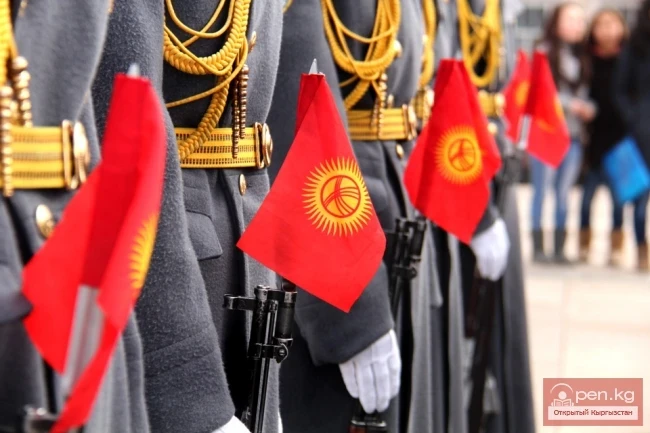Independence of Kyrgyzstan: Economic Aspect
While celebrating the day of independence of Kyrgyzstan, we often do not think about the fact that sovereignty is a legal status that becomes formal if it is not supported by economic indicators. In our global world, where countries actively trade with each other, invest money in each other's economies, exchange tourists, students, and labor migrants, it is becoming increasingly difficult to remain an independent state.
Civilization is rapidly developing, old notions of the world are collapsing, and now the needs for economic growth do not align with the principles of former state sovereignty; national borders hinder the free flow of capital, material, and human resources, and therefore slow down the economic development of countries. This is why, within the framework of integration unions, which are becoming more and more numerous, barriers to the free exchange of goods, services, capital, technologies, and labor are being removed. This is the trend of the times.
No one resorts to the policy of autarky—state self-isolation for the purpose of complete self-sufficiency—anymore; attempts in world history have shown its ineffectiveness, meaning it has remained in the past, although certain elements of such policies are used by various countries to protect their internal markets. It is important to maintain a balance; excessive dependence on external ties is as dangerous as excessive isolation. In the first case, it leads to a partial loss of sovereignty, while in the second, it results in economic stagnation.
Kyrgyzstan, as a developing country, still heavily depends on trade with foreign countries, with imports significantly exceeding exports. According to official data, the external trade balance was negative in 2013, amounting to a substantial $4.2 billion... The export volume was $1.8 billion, while the import volume was about $6 billion. Thus, over 70% of the republic's external trade turnover consists of imports, which exceed exports by approximately three times.
In recent years, the government has taken measures to improve the situation by promoting the export of domestic goods to the markets of neighboring countries and supporting enterprises focused on import substitution. The results are already becoming evident. According to the National Statistics Committee of the Kyrgyz Republic, the current year has shown a positive trend—exports are increasing, and imports are decreasing.
For instance, in the first seven months of 2014, the export volume reached $732.4 million, while imports totaled $2.396 billion. Exports increased by 11.7 percent compared to 2013, while imports decreased by 9.5 percent. It is likely that this trend will strengthen by the end of the year due to new opportunities for expanding the supply of Kyrgyz agricultural products to Russia, arising from the retaliatory sanctions imposed by the Russian Federation on Western countries. Specific agreements have already been reached with the Russian side in this direction.
Kyrgyzstan is also taking all necessary measures to ensure food independence, providing state support to agricultural producers. Over the past two years, significant work has been done in the country on building canals, issuing preferential loans, financing the leasing of agricultural machinery, tightening regulations on the transformation of agricultural land, and restoring seed production farms. There are already shifts in this sector of the economy; according to the Ministry of Agriculture of the Kyrgyz Republic, last year there was a 2.9% increase in agricultural production (102.9%), including a 4.9% increase in crop production (86.6 billion soms) and a 1.0% increase in livestock production (81.7 billion soms).
Currently, according to information from the same ministry, the republic provides its population with bread products at 87.8%, potatoes at 142.4%, vegetables at 145.9%, fruits and berries at 27.1%, meat at 56.1%, eggs at 16.2%, sugar at 40%, and vegetable oil at 30.9% from domestic production. Experts believe that the overall situation with food security in Kyrgyzstan is stable and meets an optimal level, where the needs of the internal food market are met by domestic production at 80-85%. Nevertheless, additional efforts are required in certain areas to reduce dependence on external supplies.
Sovereignty must be fought for by developing one's own economy and expanding foreign economic ties. In international relations, one party often uses economic leverage to exert pressure on another in contentious situations. A vivid example of such methods (and even outright blackmail) to promote one's interests is the situation with Uzbekistan's natural gas supplies to the southern regions of the republic.
In the spring of this year, Tashkent suspended the supply of blue fuel to southern Kyrgyzstan, putting forward a number of conditions for the resumption of supplies. One of the conditions was the refusal to participate in the construction of the fourth branch of the Turkmenistan-China main gas pipeline, which will run along the route Turkmenistan — Uzbekistan — Tajikistan — Kyrgyzstan — China (i.e., bypassing Kazakhstan) with a designed capacity of 30 billion cubic meters per year, of which 5 billion is the share of Uzbek gas. After the commissioning of this branch, Kyrgyzstan will receive an annual transit fee of $40 million, so the republic's authorities do not intend to abandon such a beneficial project and are forced to take retaliatory measures.
In particular, it is planned to solve the problem of gas supply to the southern region by constructing a new gas pipeline from Kazakhstan to the south of the country through the Talas region, with assistance from the Russian Gazprom. However, this will take time, and in the meantime, the government plans to provide the population in the south with liquefied gas and electric stoves. "We will not ask for anything. I think the people will understand and support us. If possible, we will install gas cylinders for residents of private and two-story houses. If we cannot, we will provide two-burner electric stoves for two years. We have seen worse times," stated then-President A. Atambayev. This is correct; sovereignty means having national interests that must be firmly defended.
Uzbek authorities also occasionally resort to another lever of pressure to resolve contentious issues—the threat of exiting the unified energy ring, which could leave parts of northern Kyrgyzstan without electricity, as residents of some northern regions receive electricity through power lines that pass through the territory of the neighboring republic. In response, Kyrgyzstan, together with Tajikistan and Kazakhstan, intends to restore the unified energy system of Central Asia along the line Tajikistan - Datka (Kyrgyzstan) - Shymkent (Kazakhstan), bypassing Uzbekistan, which will strengthen the energy independence of the republic and allow for the exchange of electricity with countries in the region and the realization of excess electricity in the summer.
For these same purposes, the construction of a 500 kV power line "Datka-Kemin" with a length of 405 km and a 500 kV substation "Kemin" is underway. The work is expected to be completed in 2015. Thus, Kyrgyzstan will achieve energy independence and save $9 million, which it currently pays to neighboring countries for electricity transit, and Kyrgyz citizens will no longer have to fear that their homes will be without light and heat.
Additionally, construction has already begun on four hydropower plants of the Upper Naryn Cascade, and a project for the rehabilitation of the Toktogul HPP is being implemented, which will extend the lifespan of the HPP by 30-40 years. Agreements have also been signed between Kyrgyzstan and Russia for the construction and operation of the Kambarata HPP-1. Any development implies, first and foremost, an increase in the consumption of energy resources, which means that Kyrgyzstan's hydropower can become, considering its export potential, the locomotive of the entire economy of the country. This is why, over the past two years, the energy sector of the republic has attracted twice as much investment as in the previous 20 years, which is significant.
I reiterate, the status of a sovereign, independent state in the modern world must be supported by indicators of economic growth; otherwise, it becomes a fiction. Kyrgyzstan has shown growth, despite the pessimistic forecasts of some analysts; by the end of 2013, the republic ranked first in the CIS in terms of growth in gross domestic product and industrial production volume, and these are figures that cannot be disputed.
Myrlan Alymbekov, KABAR News Agency
Read also:

Types of Higher Plants Listed in the "Red Book" of Kyrgyzstan (1985)
Species of higher plants removed from the "Red Book" of Kyrgyzstan (1985) Species of...
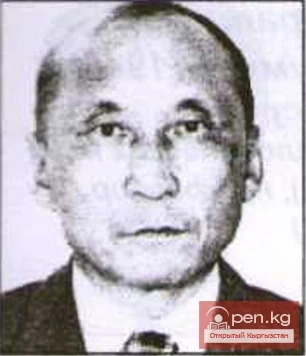
Omuraliyev Ashymkan
Omuraliyev Ashymkan (1928), Doctor of Historical Sciences (1975), Professor (1977) Kyrgyz. Born in...

Types of Insects Listed in the 2004 IUCN RLTS Not Included in the Red Book of Kyrgyzstan
Insect species listed in the 2004 IUCN RLTS, not included in the Red Book of Kyrgyzstan 1....

Tourist Area Management Program
The project "USAID Business Development Initiative" (BGI), within the tourism...

Types of Insects Excluded from the Red Book of Kyrgyzstan
Insect species excluded from the Red Data Book of Kyrgyzstan Insect species excluded from the Red...

The Poet Sooronbay Jusuyev
Poet S. Dzhusuev was born in the wintering place Kyzyl-Dzhar in the current Soviet district of the...

The Poet Baidilda Sarnogoev
Poet B. Sarnogoev was born on January 14, 1932, in the village of Budenovka, Talas District, Talas...

Prose Writer, Critic Dairbek Kazakbaev
Prose writer and critic D. Kazakbaev was born on June 20, 1940, in the village of Dzhan-Talap,...

Poet, Prose Writer Tash Miyashev
Poet and prose writer T. Miyashev was born in the village of Papai in the Karasuu district of the...
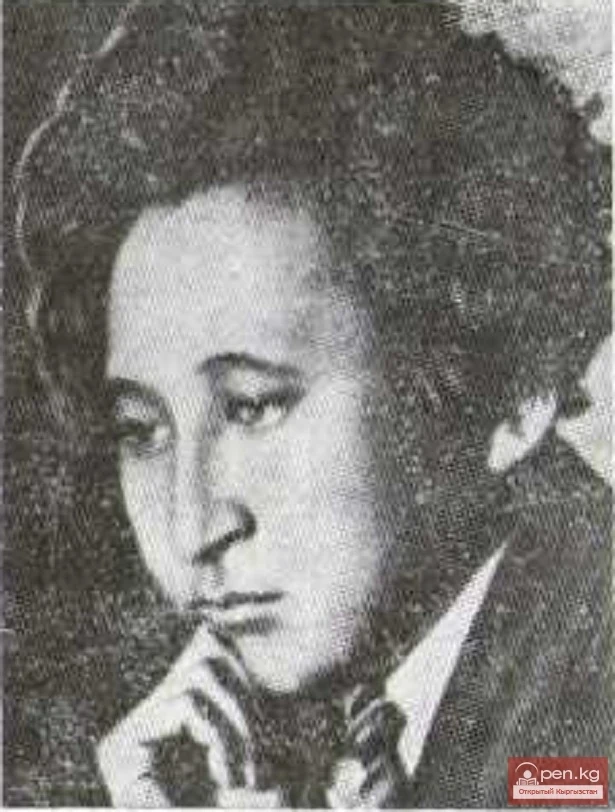
Poet, playwright Dzhomart Bokonbaev
Poet and playwright J. Bokonbaev was born on May 16, 1910 — July 1, 1944, in the village of...
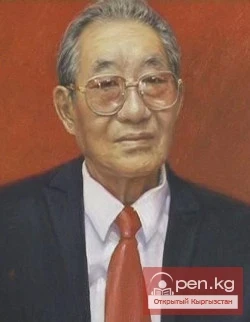
Poet, Prose Writer Isabek Isakov
Poet and prose writer I. Isakov was born on September 1, 1933, in the village of Kochkorka,...

Poet, Prose Writer Medetbek Seitaliev
Poet and prose writer M. Seitaliev was born in the village of Uch-Emchek in the Talas district of...
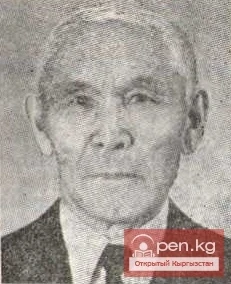
Literary scholar, prose writer, poet Dzaki Tashtemirov
Literary scholar, prose writer, poet Dz. Tashtemirov was born on October 15, 1913—October 7, 1988,...
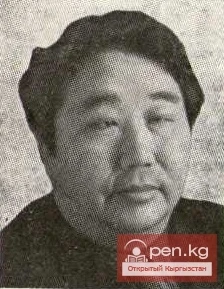
The Poet Smar Shimeev
Poet S. Shimeev was born on November 15, 1921—September 3, 1976, in the village of Almaluu, Kemin...
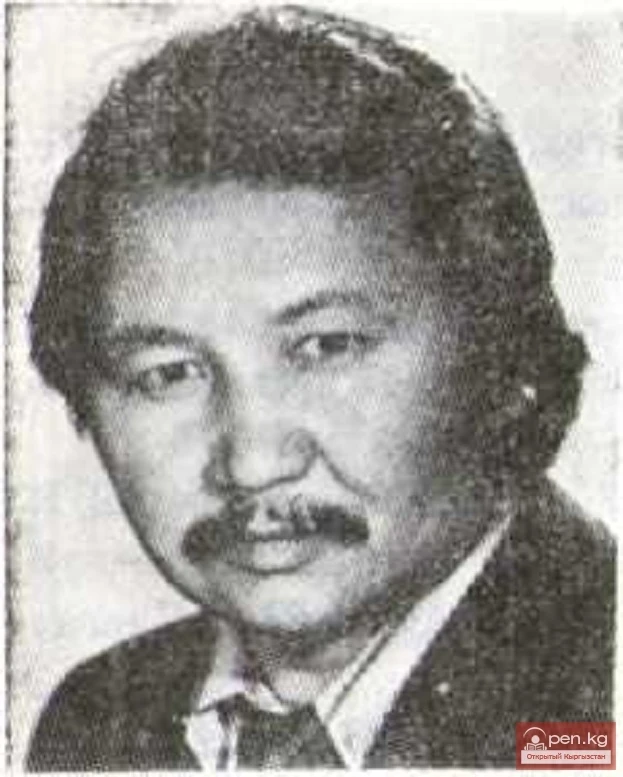
Prose Writer, Playwright, Screenwriter Erkin Borbiyev
Prose writer, playwright, screenwriter E. Borbiev was born on August 12, 1937, in the village of...

Prose Writer Duyshen Sulaymanov
Prose writer D. Su laymanov was born in the village of Jilaymash in the Sokuluk district of the...
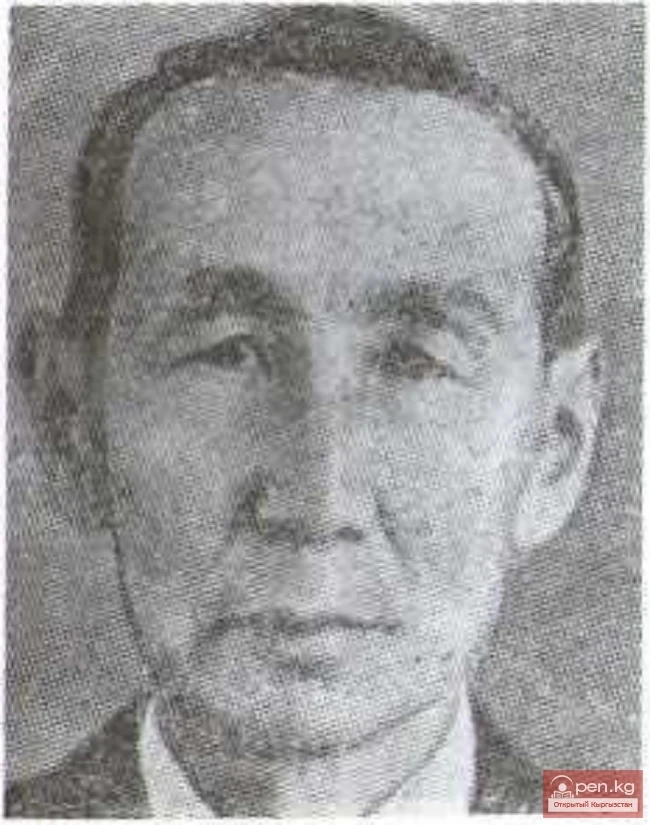
Prose Writer Kasymaly Bayalinov
Prose writer K. Bayalynov was born on September 25, 1902—September 3, 1979, in the Kotmaldy area...
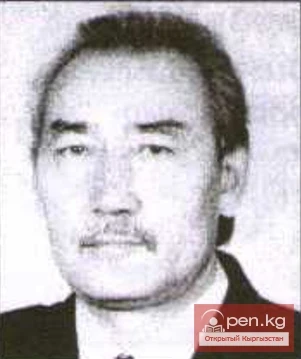
Kenesariyev Tashmanbet
Kenesariyev Tashmanbet (1949), Doctor of Historical Sciences (1998), Professor (2000) Kyrgyz. Born...
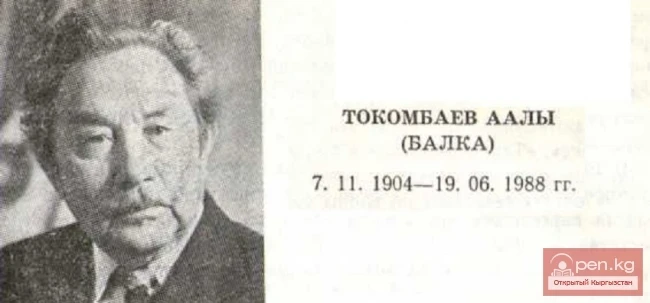
Poet, Prose Writer, Playwright Aaly Tokombaev (Balky)
Poet, prose writer, playwright A. Tokombaev was born in the village of Kainy in the present-day...

The Poet Kubanych Akaev
Poet K. Akaev was born on November 7, 1919—May 19, 1982, in the village of Kyzyl-Suu, Kemin...
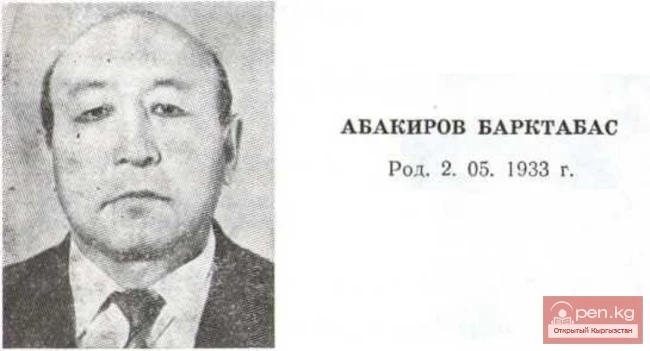
Poet, Journalist Barktabas Abakirov
Poet and journalist B. Abakirov was born in the village of Kum-Dyube in the Kochkor district of...
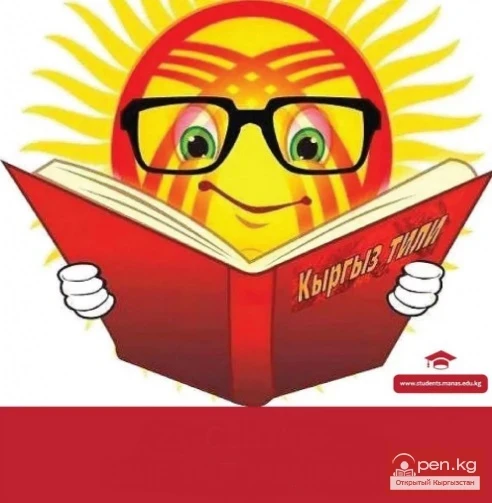
Moods and Function Words in the Kyrgyz Language
Moods in the Kyrgyz Language The Kyrgyz language presents the following moods: imperative,...
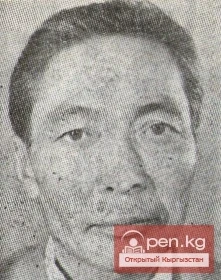
The title translates to "Poet Soviet Urmambetov."
Poet S. Urmambetov was born on March 12, 1934, in the village of Toru-Aigyr, Issyk-Kul District,...

Poet, Playwright J. Sadykov
Poet and playwright J. Sadykov was born on October 23, 1932, in the village of Kichi-Kemin, Kemin...
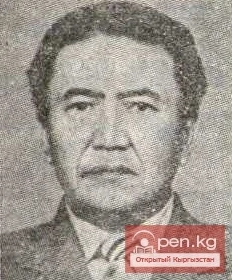
Poet Esengul Chopieva (E. Urmatvek)
Poet E. Chopieff was born on June 27, 1937, in the village of Kyzyl-Bairak, Kemin district, Kyrgyz...
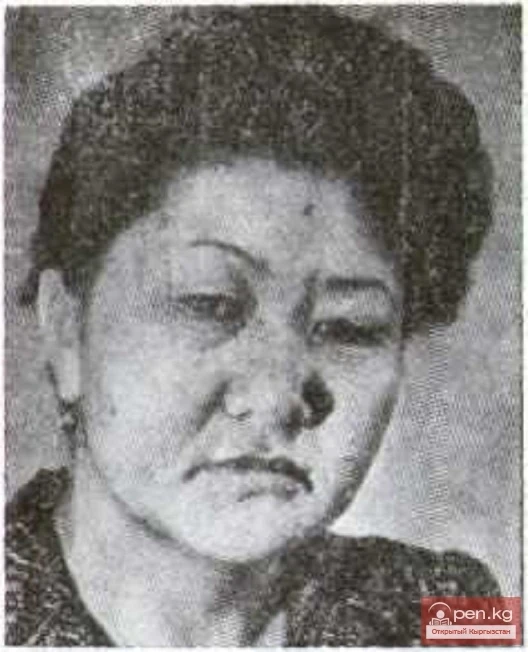
The Poet Alymkan Degenbaeva
Poet A. Degenbaeva was born on May 12, 1941, in the village of Belovodskoye, Moscow District,...
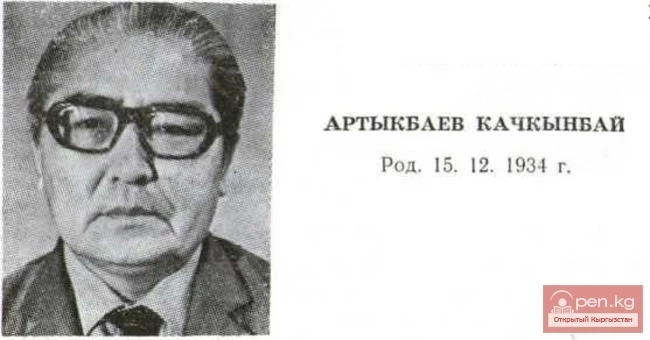
Critic, Literary Scholar, Poet Kachkynbai Artykbaev
Critic, literary scholar, poet K. Artykbaev was born in the village of Keper-Aryk in the Moscow...
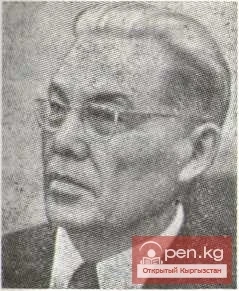
Prose Writer, Essayist, Publicist Satkyn Sasykbaev
Prose writer, essayist, publicist S. Sasykbaev was born on September 25, 1907, in the village of...
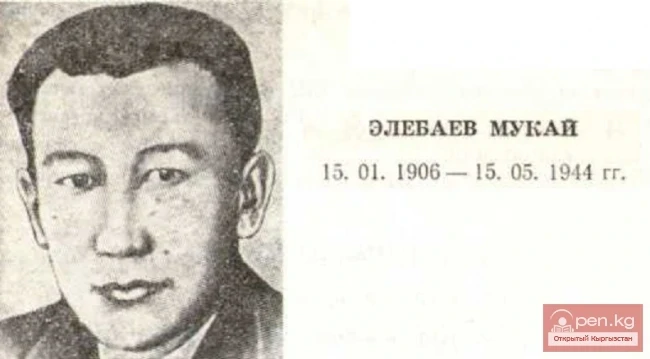
Poet, Prose Writer Mukai Elebaev
Poet and prose writer M. Elebaev was born in the village of Chon-Tash in the present-day Tyup...

Rain and Storms in the Works of Togolok Moldo
Understanding the Formation of the Universe and the Development of Living Organisms and Plants by...
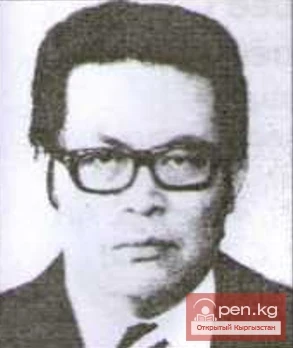
Karymshakov Rakhym Karymshakovich
Karymshakov Rakhym Karymshakovich (1936), Doctor of Physical and Mathematical Sciences (1995),...

Improvisational Poet Alymkul Usenbaev
Akin-improviser A. Usenbaev was born in 1894 and died on August 2, 1963, in the village of...

Critic, Literary Scholar A. Sadykov
Critic and literary scholar A. Sadikov was born in the village of Kara-Suu in the At-Bashinsky...
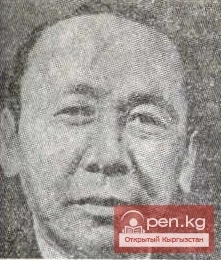
Poet Mukambetkalyy Tursunaliev (M. Buranaev)
Poet M. Tursunaliev was born on January 11, 1926, in the village of Alchaluu, Chui region of the...
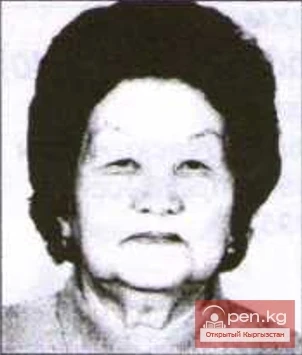
Magrifa Rahimova Rahimovna
Rakhimova Magrifa Rakhimovna (1929), Doctor of Pedagogical Sciences (1978), Professor (1982)...
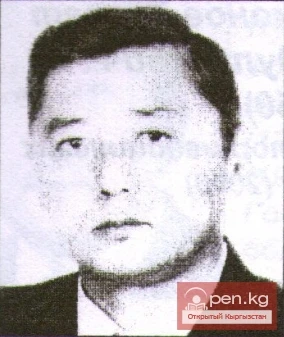
Oskyon Dzhusupbekovich Osmonov
Oskon Osmonov Jusupbekovich (1954), Doctor of Historical Sciences (1994), Professor (1996) Kyrgyz....
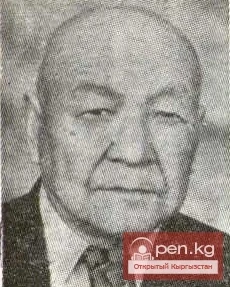
Poet Tolen Shamsiyev
Poet T. Shamshiev was born on October 14, 1910, in the village of Kurshab, Uzgen District, Osh...

Prose Writer, Journalist Djapar Saatov
Prose writer, journalist Dzh. Saatov was born on February 15, 1930, in the village of Alchaluu,...
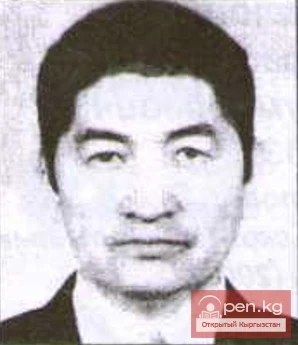
Chorotegin (Choroev) Tynchtykbek Kadyrmambetovich
Chorotegin (Choroев) Tynchtykbek Kadyrmambetovich (1959), Doctor of Historical Sciences (1998),...
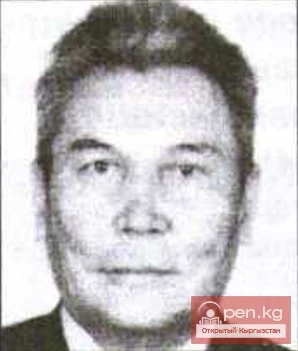
Doolotaliev Seyit
Doolataliyev Seyit (1940), Doctor of Economic Sciences (1993), Professor (1997) Kyrgyz. Born in...
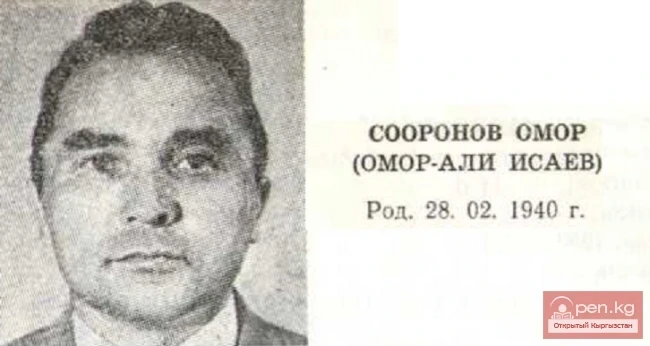
Poet, Critic, Literary Scholar Omor Sooronov
Poet, critic, literary scholar O. Sooronov was born in the village of Gologon in the Bazar-Kurgan...
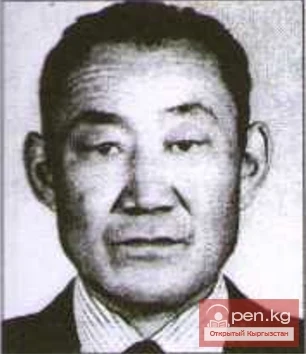
Osmonov Anvar Osmonovich
Osmonov Anvar Osmonovich (1941), Doctor of Veterinary Sciences (2000) Kyrgyz. Born in the village...
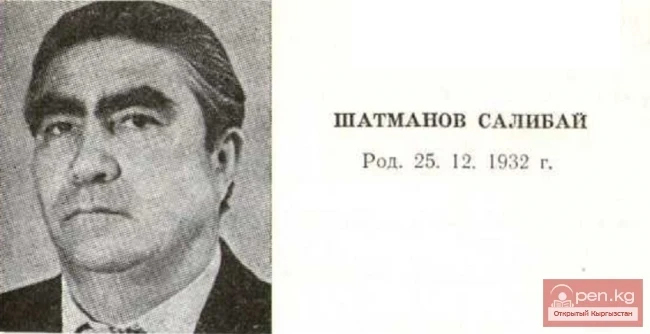
The Poet Salibay Shatmanov
Poet S. Shatmanov was born in the village of Kyzyl-Dzhar in the Jangi-Dzhoy district of the Osh...
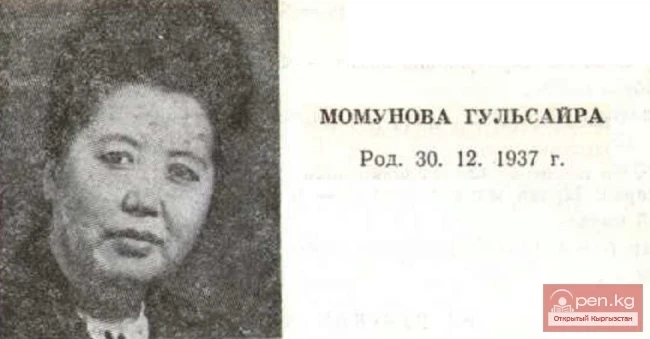
The Poet Gulsaira Momunova
Poet G. Momunova was born in the village of Ken-Aral in the Leninpol district of the Talas region...
